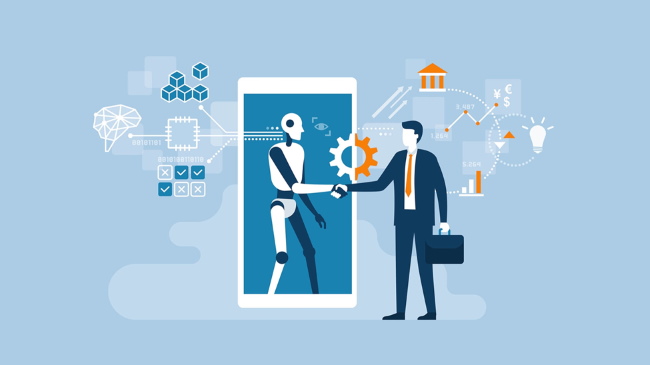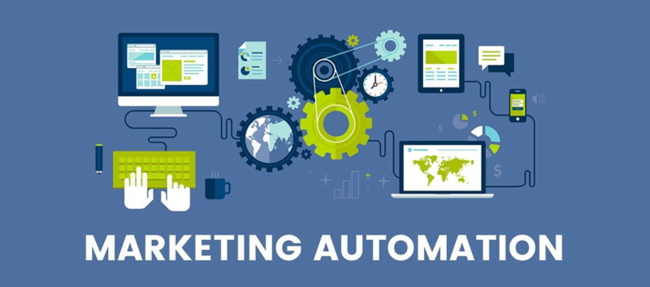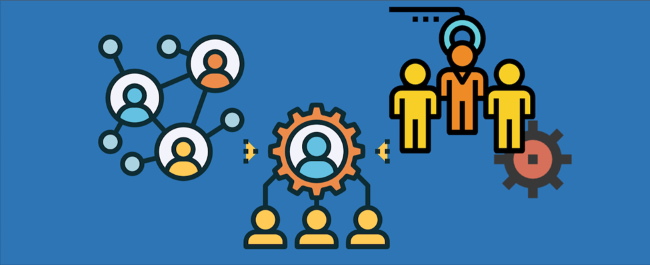Artificial intelligence (AI) is the result of combining a number of different software technologies in order to create a system in which a computer may function in a manner like that of the human brain.
It is a hybrid of a wide range of technologies, including data science, machine learning, data analytics, automation, and many more. Artificial intelligence is being developed as a whole with the goal of making life simpler.
The majority of the time, we find a great deal of explanatory material and examples in science fiction movies and books. However, it is not the same as what has been demonstrated and discussed. In spite of appearances to the contrary, artificial intelligence is still in the developmental stages; it has not yet touched the level where it can do complex tasks.

You are not a time traveler from another age if you are aware that businesses implement automation in as many processes as is practically practicable. Employing AI, it is now possible to automate tasks in manufacturing settings using equipment that requires a high level of specialized knowledge. You may need the services of an artificial intelligence engineer in order to put AI solutions into action in your company.
During the employment process, artificial intelligence may be of assistance in attracting candidates for available positions and screening those prospects. The software has the capability to evaluate how well their talents match those of the candidate, conduct an interview with the candidate, and write a report based on the results of the interview.
AI is also responsible for controlling and renewing the company’s temporary employee arrangements. An employer’s ability to carry out this process in an efficient manner can be made easier by the computer’s ability to raise knowledge of widely approved recruitment procedures. Employees are the best asset for any business and you can even distinguish between recruitment and selection.
This article contains some of the business areas in which you can implement AI to get the best results:
Get desirable customer feedback by improving their experience
Businesses put in a lot of energy to ensure that customers like their interactions with an organization or service and are eager to share their positive experiences with others. One of the most effective strategies to maintain satisfied consumers is to quickly resolve any problems that may arise.
On the other hand, this may become difficult for firms that are expanding as more and more requests are received. As a direct result of this, businesses are beginning to implement AI into their customer support teams in order to recover the overall experience for their customers.

Here are two interesting aspects of AI in the field of customer services:
- Voice-bots to automate the phone calls
- Chat-bots to the customer service agent
AI voice-bots are able to listen to the caller, understand how they are feeling, and gauge the gravity of the problem simply by listening to what is being said. An AI voice-bot, which is similar to a chat-bot but uses speech rather than text to communicate with users, may be taught to respond on its own to frequently asked queries, much like a chat-bot would.
Because they are able to interpret questions, they may also be used to enhance the classification of calls and make certain that callers are linked to the most relevant department possible.
These Chat-bots, which are driven by artificial intelligence, assist businesses in completing tasks, resolving difficulties, and even communicating with prospective customers. Chat-bots driven by AI is able to provide assistance to a large number of customers around the clock, without the need for a human employee. As a consequence of this, chat-bots driven by AI are increasingly being employed to communicate with customers.
Automate Marketing operations using AI
Many businesses and marketing teams are fast embracing intelligent technology solutions such as artificial intelligence (AI) in order to increase operational efficiency while also boosting the quality of the customer experience. Artificial intelligence allows marketers to have a more in-depth understanding of the customers they are trying to reach. The information that was gathered may then be used to improve conversion rates while also lowering the amount of effort done by marketing teams.

Artificial intelligence is used to do an analysis of the user’s location, demographics, device, interactions with the website, and other information. Based on the outcomes of this analysis, the user is presented with the material and offers that are most pertinent to their situation.
Through the use of behavioral customization, push notifications may be catered to the specific needs of individual users, ensuring that those users receive the most pertinent message at the most opportune time.
When it comes to SEO, the term “search volume” tells us how many people are seeking particular words and phrases when they are shopping for products or services. These days, machine learning (ML) techniques are being utilized to get a deeper understanding not just of the content of searches but also of the motivations behind the use of particular search terms.
Additional use is to investigate the SEO strategies utilized by competitors in order to locate any gaps that may be present in one’s own strategy or to uncover keywords that rivals are not utilizing in order to get a competitive edge. AI may also generate marketing content that is optimized for search engines and add it to your website.
Expand your human resource activities with AI
After the COVID-19 pandemic, those who work in human resources are facing a workplace that is incredibly distinct from what it was before the epidemic. As the number of hybrid and remote workforces continues to grow, virtual recruiting, as well as a huge emphasis on diversity and inclusion, have both introduced new dynamics and strengthened the ones that were already in place. To keep a competitive advantage in the market, new platforms and technologies are essential, and AI sits at the core of this expansion.

A significant number of businesses have made investments in AI in order to facilitate the recruitment process. Through the use of AI, HR managers are able to examine the previous work experiences and interests of a possible applicant and then match them with the most suitable jobs.
AI may be used to assess formal and informal interactions inside an organization, which can help design business strategies that promote the organic exchange of information. This can aid your firm in being more profitable and sustainable.
Boost your sales
Professional sellers and sales businesses are reevaluating how humans and robots should work together in the sales process. Automation and artificial intelligence are already having an effect on sales and will continue to do so in the future.
Companies who use AI for sales are able, according to research published in the Harvard Business Review, to boost the number of leads they receive by more than 50 percent, cut the amount of time spent on calls by 60–70 percent, and see a reduction in costs of 40–60 percent.
In light of these statistics, it may come as no shock that business executives who are interested in enhancing their bottom line should investigate artificial intelligence.

Predictions are difficult to make, but they can be done automatically. The generation of automatic and accurate sales estimates that are based on the whole of customer contacts as well as prior sales performance is made possible by artificial intelligence.
The prioritizing of leads is made easier by AI. These tools assist sales professionals in prioritizing consumers depending on the likelihood of the customer making a purchase. With the help of artificial intelligence, the algorithm can rank the opportunities or leads in the pipeline based on their likelihood of successfully closing a deal. This is accomplished by compiling historical information about a client as well as social media postings and the salesperson’s previous interactions with customers.
Reduce threats and improve the security of business
Data has an incredible amount of value, particularly in today’s data-driven corporate environment. Regrettably, this indicates that the motivation to steal sensitive data is increased, which is especially the case when there is a big reward to be obtained or when there is sociopolitical pressure.
By utilizing a variety of AI techniques, including those that are analytical and predictive, businesses may protect themselves against hackers and other types of cyberattacks. These techniques can forecast not just how assaults will occur but also what may trigger them.
For example, Neural Networks are able to continuously learn from enormous volumes of raw data while simultaneously doing a variety of tasks parallel. They are reliable computational systems that have the ability to recognize patterns well and make accurate predictions yet have low error rates. Because of their ability to learn from raw data, they are particularly well adapted to the task of averting cybersecurity threats, which may frequently take a variety of various forms.

Expert systems are another method of cybersecurity that shows promise, despite the fact that their capability is somewhat more limited. These systems are limited in what they can accomplish since human knowledge defines the tasks that they are able to complete.
As such, they are intended to imitate the logic used by human specialists by adding selected data sets into their learning processes and doing it automatically. These systems are extremely adept at resolving difficult cybersecurity challenges, which we are very knowledgeable about but do not have the resources to address ourselves due to time or resource constraints.
Reduce operational and other related costs
The capability of an organization to function in a manner that is both more effective and more efficient is the end consequence of all of the advantages described above. Even if this might eventually result in certain people losing their employment and being replaced by autonomous agents, the company as a whole will still be better off as a result of this.
Businesses will be able to maximize their financial profits and minimize their financial losses with the help of artificial intelligence (AI) tools that enable Big Data analytics. These tools will enable businesses to identify weak points in their business models, increase their digital presence, and provide products that are tailored to the specific requirements of consumers.
Even though initial investments in AI seem expensive, businesses that choose not to embrace the technology and get benefits from it will swiftly fall behind competitors that embrace AI and will face more significant financial burdens in the long run. This is true even if businesses invest in AI.
Conclusion
As was discussed before in this article, artificial intelligence (AI) and machine learning have already altered companies and will carry on to do so for many years to come. Implementing AI into corporate settings results in a reduction in the amount of time spent on repetitive work, an increase in staff productivity, and an improvement in the overall customer experience. This applies to everything from IT operations to sales. Additionally, it assists in preventing errors and identifying possible problems at a level that is unreachable by humans.
Technology should come as no surprise that firms are making use of it to improve a variety of business sectors, ranging from logistics all the way to hiring and employment. In the years to come, we believe that businesses that are on the cutting edge of artificial intelligence will not only enjoy significant financial benefits but also easily outpace their rivals.
Leveraging Artificial Intelligence to Improve your Business,




